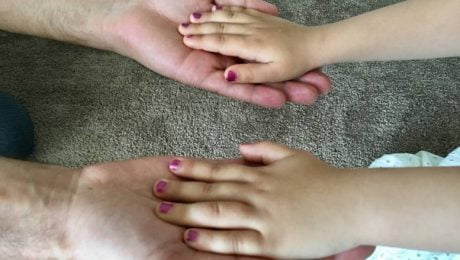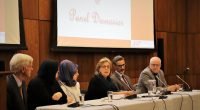Keyword: Canada

An ‘impossible’ choice: Leave 5-year-old son in foster care or risk being tortured
Nehir Aydin could be forced to make what she calls an “impossible” decision: either leave her five-year-old son alone in Canada, making him a ward of the state, or return to Turkey with him, where she and her family are at risk of persecution because of their religious beliefs.

Dissidents of the Turkish government are living in fear in Canada
Turkey’s long arm and espionage activities against dissidents living in exile in Canada has become a growing concern. As revealed in a startling recent news report, 15 Turkish-Canadians have been targeted by the Turkish government within the scope of a “terrorism” investigation.

Gulenists dismissed, purged, and tortured: Canadian Immigration Board
The findings of IRB indicated that detainees in Turkey have faced different forms of torture and ill-treatment. They include severe beatings, threats of sexual assault and actual sexual assault, electric shocks, waterboarding, punches/kicking, blows with objects, falaqa [foot beating], threats and verbal abuse, being forced to strip naked, rape with objects and other sexual violence or threats thereof, sleep deprivation, stress positions, and extended blindfolding and/or handcuffing for several days.

‘I don’t have a home right now’: Turkish NBA player Enes Kanter talks activism, basketball
“I don’t have a home right now,” Kanter told CBC News Network’s Steve Niles on Tuesday. “If I was anywhere else besides in America, besides Canada, yes, I believe my life could be in danger because I get death threats almost every day [from] Erdogan’s goons.

Canada grants asylum to eight Gulenists under UN protection in Mongolia
Eight Turkish citizens whose passports were revoked by the Turkish government travelled to Canada on August 11 just after Canada decided to grant asylum. An officer from United Nations also escorted the group for the safe exit from Mongolia and security during the journey.

As Turks flee oppression, Ottawa urged to speak out on human rights issues
Asylum seekers are still fleeing Turkey for Canada and other western countries, Kaplan said. “There’s at least 14 families (in my neighbourhood in Ottawa). I mean ladies (with kids). All their husbands have been arrested (in Turkey,)” he said. The women are not comfortable speaking out publicly for fear it could imperil their husbands behind bars in Turkey, he added.

Refugee mother overjoyed after reuniting with daughters
“There are many Turkish refugees in Canada in the same situation and separated from their families. I hope Canadian officials can use their discretion and do the same thing for them to be together,” said Baris. “I’m still missing my husband. My daughters are missing their father. Hopefully, he can join us soon.”

A Turkish coup, a family torn apart, a dramatic escape on foot: ‘Can you believe the things we went through?’
She could stay in Turkey where she might end up imprisoned, at risk of torture and sexual assault, and separated from her young children. Or she could take them on a dangerous journey, with no guarantee of survival.

Canada’s Green Party leader on human rights violations in Turkey: I am entirely horrified
Canada’s Green Party leader and lawmaker Elizabeth May said during a panel discussion held at the Canadian Parliament in Ottawa on widespread human rights violations in Turkey that “I am entirely horrified by the behaviour of the Turkish government. We need to be more speaking out loud.”

Family, friends losing hope as Calgary imam arrested in Turkey remains imprisoned
For a year, Calgary imam Davud Hanci has spent most of his days in solitary confinement in Turkey, accused of being a terrorist linked to failed 2016 coup attempt. “They’re just holding him there and they don’t want to release him because they don’t have any real evidence,” said Malik Muradov, executive director of Calgary’s Intercultural Dialogue Institute and a friend of Hanci.

Ottawa urged to expedite residency process for those fleeing oppression in Turkey
Human rights advocate Renée Vaugeois wrote a letter asking Immigration Minister Ahmed Hussen to expedite the Edmonton man’s residency application. She thinks that this is a targeted war on a specific group of people in Turkey and to her that speaks to genocide.

Canada’s Turkish community on edge as government crackdown continues
In the aftermath of the failed coup — and the subsequent purge of thousands of workers accused of being dissidents — Canada has seen a spike in asylum claims from Turkey. The 55,000-strong Turkish-Canadian community has also become increasingly polarized, with distrust and accusations of witch hunts against anyone deemed to be a sympathizer and supporter of the Gulen Movement.




















